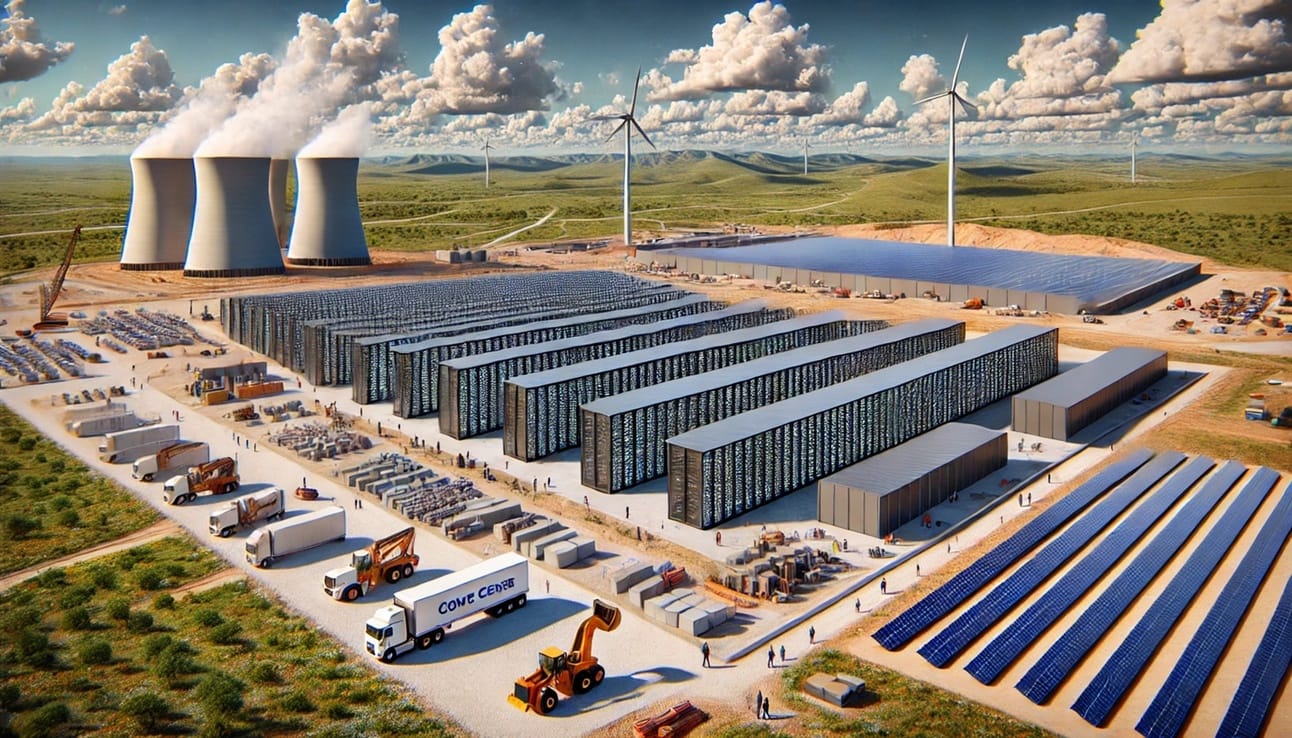
Image Source: ChatGPT-4o
Stargate Project: $500 Billion AI Infrastructure Plan in the U.S.
The Stargate Project, a groundbreaking new venture, has been announced by OpenAI, SoftBank, Oracle, and several other technology leaders. The project aims to invest $500 billion over the next four years to construct state-of-the-art AI infrastructure in the United States. An initial $100 billion will be deployed immediately, with the first major site breaking ground in Texas.
This massive initiative promises to solidify America’s leadership in artificial intelligence, create hundreds of thousands of jobs, and spur widespread economic growth. The companies involved emphasize that the infrastructure will not only fuel innovation but also play a critical role in bolstering national security for the U.S. and its allies.
Key Partners and Leadership
The Stargate Project is backed by leading global investors and technology partners:
Lead Partners: SoftBank and OpenAI, with SoftBank overseeing financial aspects and OpenAI managing operations.
Chairmanship: SoftBank CEO Masayoshi Son will serve as chairman.
Equity Investors: SoftBank, OpenAI, Oracle, and Middle East AI fund MGX join as initial equity funders.
Technology Partners: Microsoft, NVIDIA, Arm, Oracle, and OpenAI. Oracle, NVIDIA, and OpenAI will play key roles in building and managing the infrastructure.
OpenAI and Microsoft Partnership: OpenAI will expand its use of Azure to leverage additional computing power, advancing its efforts with Microsoft to train leading AI models and deliver innovative products and services.
Ambitious Infrastructure Buildout
The first phase of the project will focus on constructing a data center in Abilene, Texas. This facility is expected to consume nearly a gigawatt of electricity, enough to power 750,000 homes, and will include 10 massive buildings, each spanning 500,000 square feet. The overall vision includes up to 20 such data centers across the U.S. by 2029.
Stargate’s long-term plans also involve the design of custom AI chips. OpenAI is reportedly collaborating with semiconductor giants Broadcom and TSMC to create an AI chip optimized for AI models, with prototypes potentially debuting by 2026.
Economic and Strategic Impact
Job Creation: The project is expected to generate hundreds of thousands of jobs in sectors like construction, technology, and engineering.
Economic Growth: By fostering AI-driven innovation, the initiative is anticipated to contribute significantly to global economic progress.
National Security: Advanced computing infrastructure will enhance the U.S.’s strategic capabilities in AI and technology.
OpenAI CEO Sam Altman highlighted the challenges of building large-scale infrastructure in the U.S., citing regulatory hurdles and bureaucratic inefficiencies. He urged swift action to clear obstacles, emphasizing the importance of accelerating AI development to maintain competitiveness.
Environmental and Industry Concerns
Despite its promise, the Stargate Project has drawn scrutiny over potential environmental impacts. Data centers consume vast amounts of water and energy, which can strain local resources. Critics also question whether such projects deliver the level of job creation they often tout.
Nonetheless, investment in AI infrastructure is growing rapidly. A report by McKinsey estimates that capital spending on data centers could exceed $250 billion in the next five years. Companies like Microsoft, through initiatives such as the Global Artificial Intelligence Infrastructure Investment Partnership (GAIIP), are already committing $100 billion to similar efforts.
What This Means
The Stargate Project marks a pivotal moment in the AI industry, addressing growing demand for computing power while positioning the U.S. as a global leader in artificial intelligence. With substantial financial backing and visionary leadership, the initiative could reshape the future of technology and secure a competitive edge in AI innovation.
However, careful consideration of environmental and regulatory challenges will be crucial to ensuring the project’s success. Collaboration between private and public sectors will play a vital role in balancing technological advancement with sustainability and ethical responsibility.
Editor’s Note: This article was created by Alicia Shapiro, CMO of AiNews.com, with writing, image, and idea-generation support from ChatGPT, an AI assistant. However, the final perspective and editorial choices are solely Alicia Shapiro’s. Special thanks to ChatGPT for assistance with research and editorial support in crafting this article.
